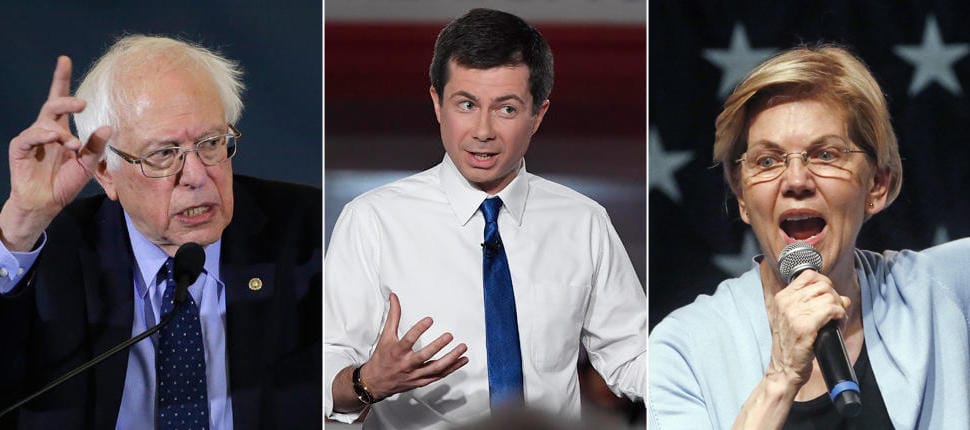Sanders, Warren and Buttigieg: Democratic Presidential Candidates With a Broadband Plan
Amy Klobuchar also focused on broadband mapping and rural connectivity; Joe Biden wants grants to expand access for underserved communities WASHINGTON, October 2, 2019 – Lack of access to high-speed broadband remains a fundamental issue for many Americans. Some of the Democratic presidential candida

Amy Klobuchar also focused on broadband mapping and rural connectivity; Joe Biden wants grants to expand access for underserved communities
WASHINGTON, October 2, 2019 – Lack of access to high-speed broadband remains a fundamental issue for many Americans. Some of the Democratic presidential candidates have expressed the need to provide universal broadband access, while others seemed to have placed the issue on the backburner.
Bernie Sanders, Elizabeth Warren and Pete Buttigieg are the top contenders of candidates who have released concrete information in support of addressing broadband issues.
On his campaign website, Sanders says that America needs strong broadband coverage if business is going to thrive, create jobs and be competitive in the national and global economies. Most notably, Sanders includes broadband reform in his Green New Deal to address the effects of climate change.
“Internet access and communications are key in the wake of a disaster,” states his website. Publicly owned broadband infrastructure will help states and municipalities deal with climate emergencies. Broadband funding will also be provided to communities that have been the most adversely affected by climate change.
Warren’s campaign has called out big broadband companies for excluding tribal communities and rural communities of color from access to high-speed internet. Her proposal includes the creation of an Office of Broadband Access that will manage a new $85 billion federal grant program to massively expand broadband access across the country.
Additionally, Warren has emphasized the necessity to improve the accuracy of broadband mapping, restoring net neutrality and making it clear in federal statute that municipalities have the right to build their own broadband networks.
Buttigieg has proposed an $80 billion Internet for All Initiative, with the goal to expand access to all currently unserved and underserved communities. The initiative includes investment in better broadband mapping and passing legislation that would embrace community-driven broadband initiatives.
Buttigieg also aims to close the “homework gap” and ensure that all children can take advantage of digital learning opportunities. His campaign also supports a C-Band auction, upgrading the 911 system and expanding the Department of Transportation’s Smart City Challenge Initiative.
Amy Klobuchar has also made some movement in broadband reform. Earlier this year, she introduced the Improving Broadband Mapping Act, encouraging the Federal Communications Commission to use data reported by consumers as well as state and local municipalities.
Klobuchar also introduced the Broadband Interagency Coordination Act and the Precision Agriculture Connectivity Act, both of which aim to address coverage gaps in rural areas.
Other candidates have not been as specific as to how they would address broadband issues, though they have emphasized the necessity for digital inclusion.
Joe Biden has proposed a $20 billion rural infrastructure plan, partnering with municipal utilities to connect rural Americans. More specifically, he wants to triple Community Connect broadband grants to help expand access to underserved communities.
Andrew Yang hasn’t concretely addressed policies for either broadband or closing the digital divide. However, his website does emphasize the need to immediately invest and modernize current infrastructure. Yang suggests investing in a nationwide fiber-optic network to experiment with innovative new technologies.
Tulsi Gabbard has compared the lack of infrastructure in her home state of Hawaii to that of Iowa, stating that advancing technology is crucial for rural Americans.
“There are so many opportunities folks who are under-served with don’t have good connection to the internet or any connection at all are not able to access,” Gabbard said.
Beto O’Rourke, Kamala Harris, Cory Booker and Julian Castro are among the candidates who have had the least discussion on broadband and digital inclusion. These candidates have not announced specific policies pertaining to these issues, yet they have supported initiatives in the past.
Castro seems to be the sole candidate who has taken zero policy stances on connectivity issues in his campaign platform. He has however launched the ConnectHome initiative when he was Housing and Urban Development Secretary, bringing broadband to low-income and government-subsidized housing in 28 pilot cities across the U.S.









Member discussion